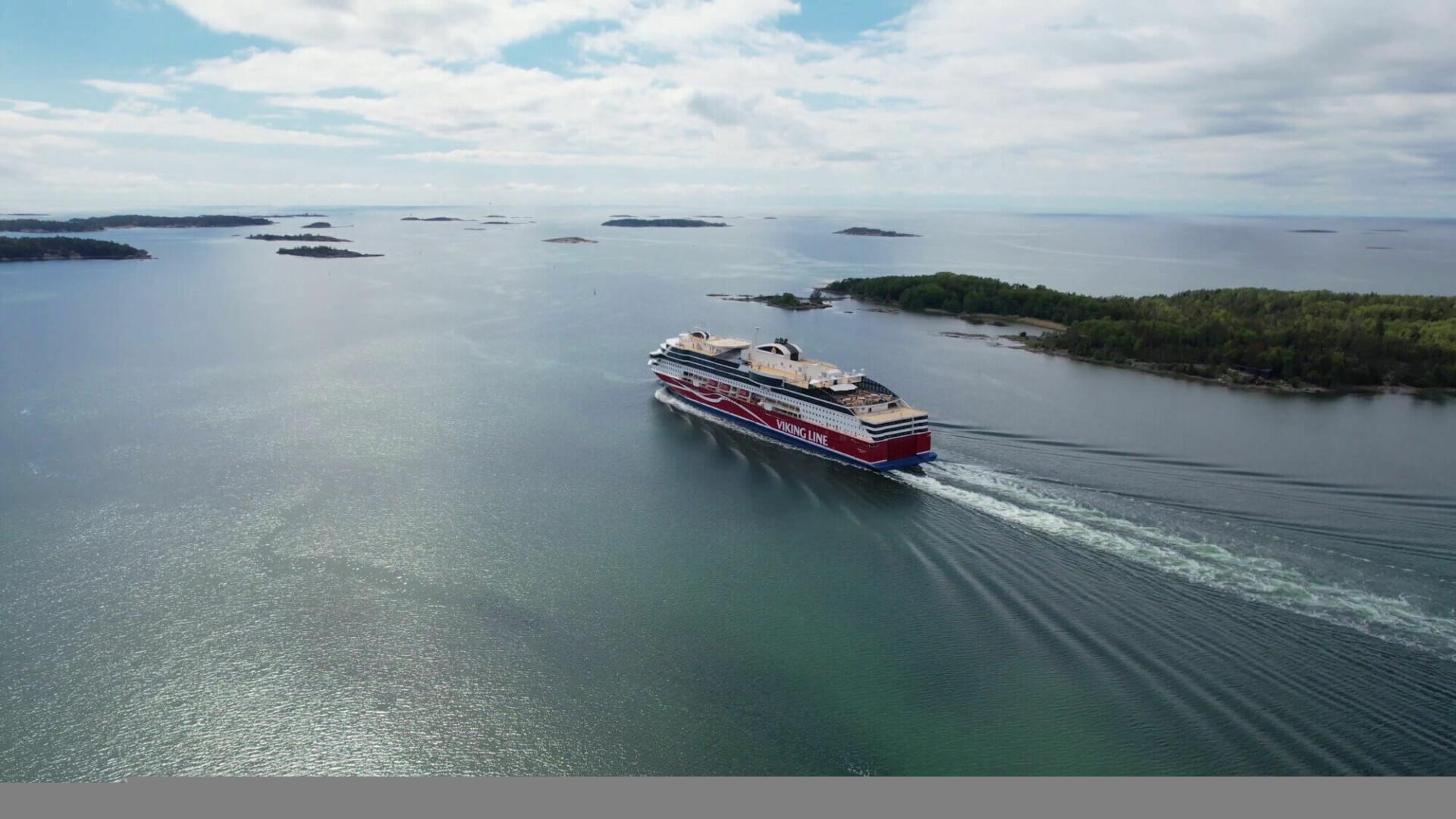
Kempower, RMC, Viking Line, and Åbo Akademi created the world’s first green maritime corridor between Turku and Stockholm
The innovation project Decatrip, which began in 2022, has been completed. The project enables one of the world’s first green maritime corridors. Rauma Marine Constructions (RMC) explored how existing ships could be modified to become more environmentally friendly. Viking Line is now equipped to modernized ships, enhancing their environmental friendliness.
The joint Decatrip project by Rauma Marine Constructions (RMC), Viking Line, Åbo Akademi, and Kempower has concluded. The project’s goal was to develop one of the world’s first green corridors on the maritime route between Turku, Finland and Stockholm, Sweden. Kempower developed retrofit charging equipment for electric vehicles on board ships. RMC’s role was to investigate the technology needed to modernize Viking Line’s vessels and retrofit them with batteries to reduce fuel consumption and methane emissions.
The Decatrip project resulted in Viking Line now offering green transport services to their customers, effectively creating one of the world’s first green maritime corridors.
“It has been a pleasure to be part of this project and to develop charging solutions for ships’ car decks. Reliability and safety are key for us, and the Kempower ChargEye charging management software ensures the safety of our charging solutions,” says Mikko Veikkolainen, Vice President, Research & Innovation at Kempower.
“Today we can offer biofuel to our passengers and freight customers by calculating the emissions attributed to the journey. By opting for biofuel, we’re able to accordingly boost our procurement of 100% renewable biofuel for low-emission travel,” says Viking Line’s Communications Director Johanna Boijer-Svahnström.
“The Decatrip project proved that sustainable shipping using renewable fuels is feasible, but you need to consider the whole business case and involve both technology providers and end customers. By doing so it was possible to create the world’s first Green Maritime Corridor,” says Åbo Akademi’s Research Director Magnus Gustafsson.
RMC’s research in the project was also successful. According to the research, implementing hybrid solutions for the Turku–Stockholm route and similar routes elsewhere in the world is feasible even on a tight schedule.
“The lifespan of ships is long. Therefore, it is important that existing ships be modernized into hybrids, thereby promoting the green transition in maritime transport. As a result of the project, RMC is fully prepared to carry out similar modernizations on comparable routes. Finland, as a state, is committed to establishing green marine corridors, and this successful project supports that commitment,” says RMC’s Deputy CEO Mika Laurilehto.
In addition to Decatrip, RMC is involved in another project focused on environmental sustainability in maritime transport, aiming to create a fully electric ship concept.
Project Partners Continue to Develop the Green Corridor
The Decatrip project, which began in 2022, received partial funding from Business Finland. The majority of the funding came from the participating companies.
Each partner had a specific role in the project. Viking Line developed a commercial model based on carbon-neutral maritime transport. RMC analyzed how existing ships could be upgraded to be more environmentally friendly. Kempower developed retrofittable charging devices for electric vehicles on ships. Åbo Akademi developed a simulation model to optimize battery and electric vehicle charging devices. Additionally, Åbo Akademi analyzed the project’s societal benefits and developed a framework for analyzing similar projects. PBI Research Institute coordinated the project.
The project partners will continue to develop the green corridor between Turku and Stockholm. Additionally, the project assessed the scalability potential of the concept for developing other similar corridors elsewhere in the world.
Kempower media:
Fredrik Palmén, Senior Communications Specialist, Kempower
+358 44 420 1887
RMC in brief
Rauma Marine Constructions (RMC) is one of Europe’s leading shipbuilding companies. Founded in the summer of 2014, the Rauma-based company is entirely Finnish-owned. RMC specializes in the construction and maintenance of passenger-car ferries, icebreakers, and defense vessels. More information can be found at www.rmcfinland.fi.
Kempower in brief
We design and manufacture reliable and user-friendly DC fast-charging solutions for electric vehicles. Our vision is to create the world’s most desired EV charging solutions for everyone, everywhere. Our product development and production are based in Finland and in the U.S., with the majority of our materials and components sourced locally. We focus on all areas of e-mobility, from electric cars, trucks, and buses to machines and marine. Our modular and scalable charging system and world-class software are designed by EV drivers for EV drivers, enabling the best user experience for our customers around the world. Kempower is listed in the Nasdaq First North Growth Market Finland. www.kempower.com






